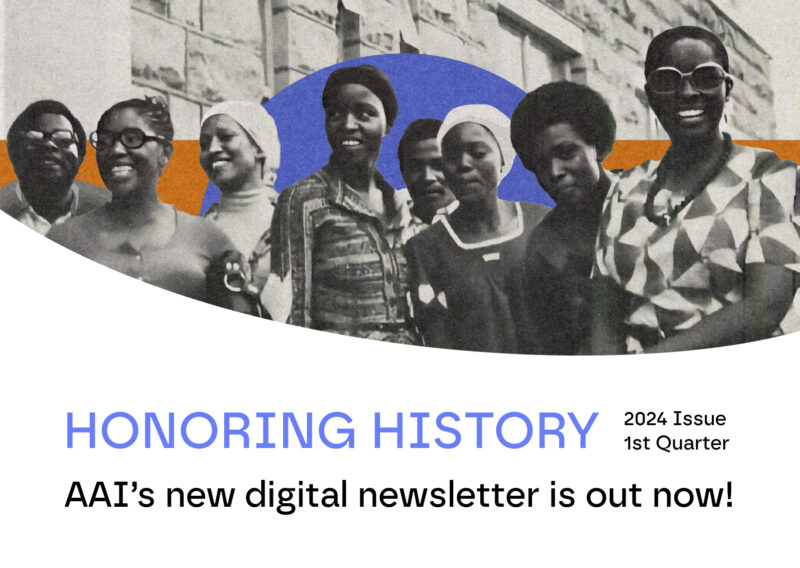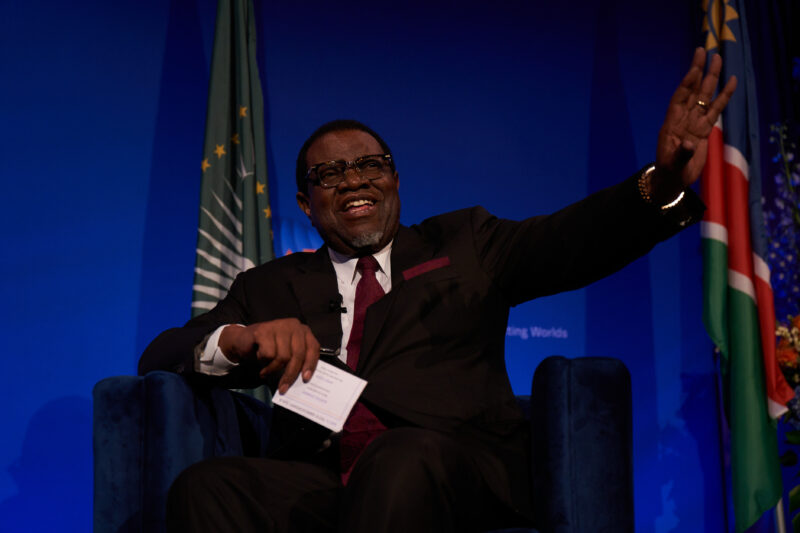From the Archives: Africa-China Policy in the 1980s

Former Chinese Premier Zhao Ziyang with former Kenyan President Daniel arap Moi during a 11-nation African Tour from December 1982 to January 1983.
For the 60th anniversary, AAI will feature a monthly “From the Archives” blog, highlighting historical milestones in AAI and African history. This blog post features verbatim historical documents from AAI’s files and articles from Africa Report, a monthly publication of in-depth analysis and reports chronicling the continent’s dramatic political and economic developments.
Published from 1956 through 1995, Africa Report became the most significant Africa-focused publication in the U.S.
Africa Report, March-April 1983.
During December 1982 and January 1983, Premier Zhao Ziyang of the People’s Republic of China made an official tour of Africa, visiting Egypt; Algeria; Morocco; Guinea; Zaire, Democratic Republic of Congo; Congo; Gabon; Zambia; Zimbabwe; Tanzania; and Kenya.
Shortly before Premier Zhao’s visit, Africa report writer Colin Legum interviewed a member of the Chinese delegation, Gong Dafei, China’s assistant minister in charge of African affairs, in Beijing.
AFRICA REPORT: What are the elements that have decided [Chinese] policy?
GONG: China and Africa have similar backgrounds—both have suffered from colonialist and imperialist rule. So it is very natural that we sympathize with and support each other. For both, independence is not the end, but the beginning of building a new future. Both Africa and China were backward at independence, whereas the Western countries were developed in industry, agriculture, and technology. So we and Africa have a common task in correcting that.
Every country formulates its policy based on self-interest. If we don’t unite with Africa, we play a weak role in international affairs. So we need to unite with Africa to expand our own role….
From our past experience, we suggest to African friends that we start with small projects and those that yield quick results. For example, the Tanzam railway required lots of resources and time, and a considerable investment. This is true also of the port we helped build for Mauritania near Nouakchott. We can’t repeat these big projects now….
So, economic assistance is continuing, but the number of big projects is being cut down. Because of our national difficulties we are also less able to offer economic loans.
In the last few years, a number of African heads of state have visited China, and they all understand our position at present. Our party and leaders say that, along with China’s own national economic effort, we will gradually increase our economic assistance to African friends.



